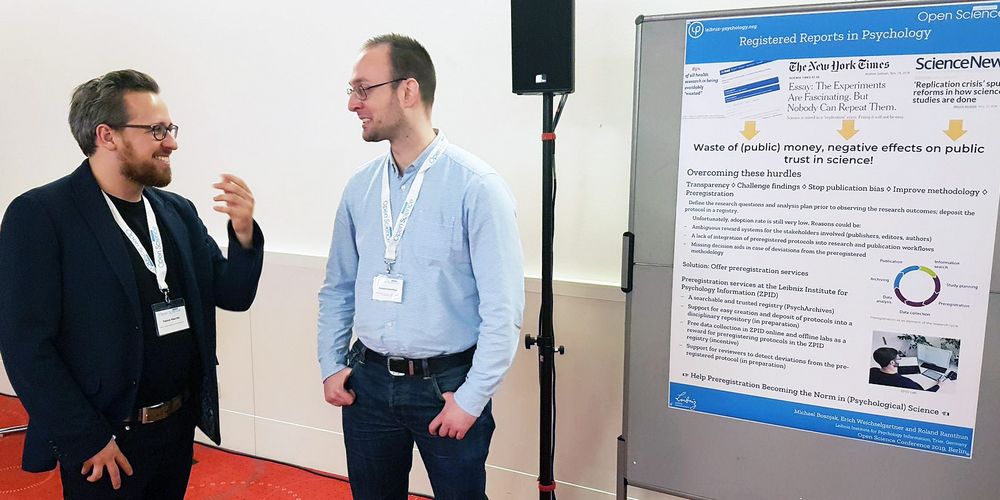"During our poster presentation numerous visitors showed interest not only in the process of improving the credibility of research, but also in its adaptability for other disciplines", said PD Dr. Erich Weichselgartner, Head of Archiving and Publishing Services at ZPID.
According to the organizers, they had received 94 submissions for the conference's poster presentation, 24 were accepted. The seven most outstanding proposals were also presented as short talks - including that of ZPID.
Roland Ramthun explained the plans to promote preregistration. The Public Open Science Institute will, among other things, offer to collect data free of charge in its own online or offline lab, provided that the studies are preregistered in advance.
"Our concrete proposals for the incentive of preregistration formats generated extremely positive feedback from the psychological participants," said Ramthun. "I was also surprised by the interest of other disciplines such as econometrics, digital humanities and mathematics in preregistrations. Here I see the potential to pass on our experience in the format's adoption in the future and, if necessary, to facilitate the development of discipline-specific adaptations."
ZPID already accepts study protocols. Stefanie Mueller, Head of Study Planning, Data Collection, and Data Analysis Services: "Our preregistration service readily facilitates what has been the guiding theme of this year's conference, namely the transition from recommendation to implementation of open science practices. At this stage, study protocols can be archived in our repository, thus increasing the transparency of the scientific process between the planning and publishing stage. By offering to use our lab free of charge after successfully reviewed preregistration, we aim to additionally incentivize scientists to make use of this service."
Further planning envisages that by the end of the year there will be a prototype software for comfortably creating and reviewing protocols and notarizing them in PsychArchives, the repository of ZPID. The offline lab (PsychLab offline) shall be fully operational next year.
The poster and the talk "Registered Reports in Psychology: Why, for whom and how?" are available via PsychArchives.
If you would like to submit a study protocol at ZPID or have any questions, please contact Stefanie Mueller, stm(at)leibniz-psychology.org.



